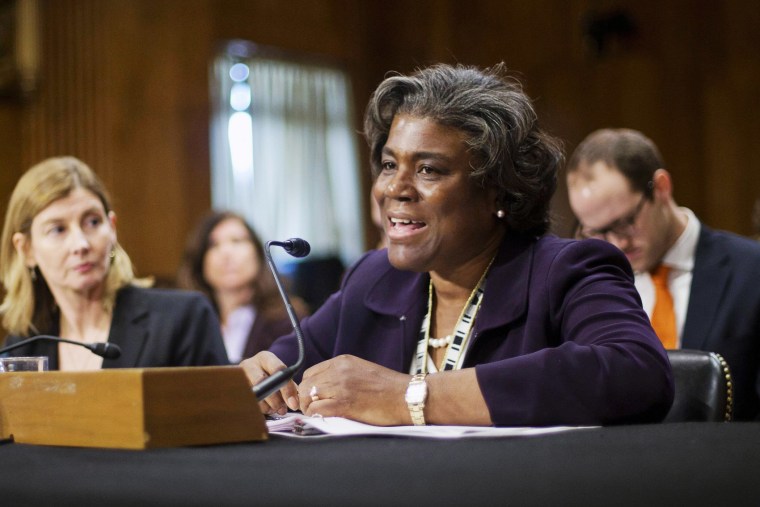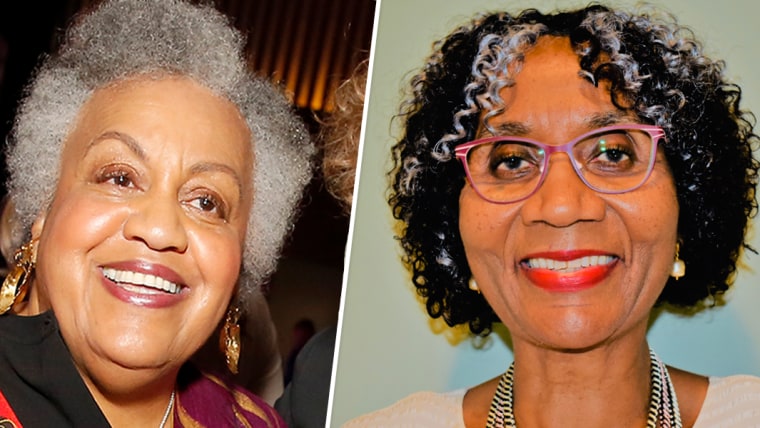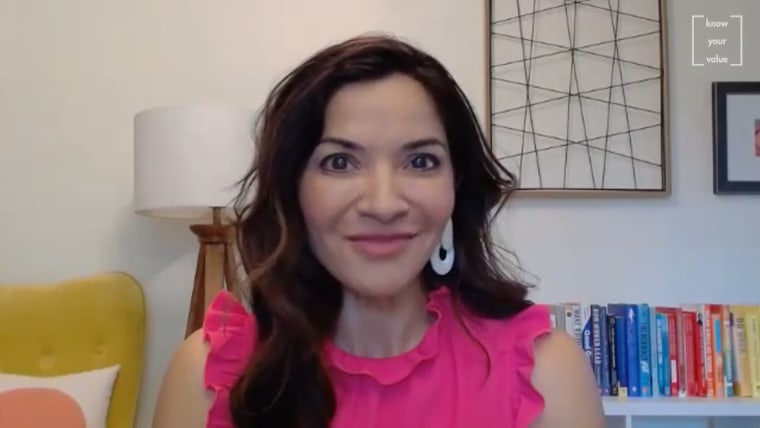Food has the power to bring people together, and perhaps no one knows this better than United Nations Ambassador Linda Thomas-Greenfield.
Thomas-Greenfield, who has had a 35-year career with the U.S. Foreign Service, has long used her home-cooked dishes to foster international dialogue.
“Particularly us women from the South….People say, ‘well the best way to a man’s heart is through his stomach.’ I say, the best way to the hearts of people, is through their stomach,” Greenfield-Thomas told MSNBC’s Symone Sanders-Townsend at the recent Black Women Lead summit in Washington D.C.
Thomas-Greenfield continued, “It is through sitting at a table having a good meal. And it’s even more impressive if you cook the meal yourself….When I want people to really enjoy a meal at my house, I cook it myself. Now I have Gumbo diplomacy, but I have something else that’s even better than the Gumbo, and it’s just red beans and rice.”
“Red beans and rice diplomacy,” replied Sanders-Townsend.
During her 2021 nomination acceptance speech for U.N. ambassador, Thomas-Greenfield, who was born and raised in Louisiana, noted how she frequently made gumbo (the state’s signature dish) with the goal of “breaking down barriers, connecting with people, and starting to see each other on a human level.”
Ambassador Thomas-Greenfield, 70, also discussed her upbringing, which included being the oldest of eight children and growing up in the segregated South. Sanders asked the ambassador to share a piece of advice she wishes she could tell her younger self.
“You know, I wish someone had told me I could be anything, that I could do anything … . I did not know when I was a young girl and even when I was in college that I could do anything and be anything.”
“When did you find out that you could [do anything]?” Sanders-Townsend asked.
“When I did it,” Ambassador Greenfield swiftly replied.
Thomas-Greenfield was nominated by President Biden to be ambassador to the United Nations on January 20, 2021. She shared how she became the second Black woman to serve in the role.
The ambassador explained that she was not informed of which position she was being considered for within the Biden Administration, all while still going through an “intense vetting process.”
“I got a call saying the President Elect [Biden] would like to see you in Delaware to interview for the position. I said, ‘what position?’ and they said, ‘you don't know?’ I'm like, ‘No, what am I being considered for?’ [I was told], ‘Oh, you're being considered for the ambassador to the United Nations as a cabinet level position,’” Thomas-Greenfield recounted.
Sanders-Townsend made the point that many Black women can identify with the ambassador’s story when it comes to leadership in the workplace. She also said that the appointment of the ambassador is refreshing for Black women across the nation.
“Oftentimes, Black women do the work. We are the best. We are the smartest and can be the most credentialed, and there's a reason why it is not us,” Sanders-Townsend said. “And in this moment, it was in fact you.”
The Black Women Lead summit was organized by All in Together, a non-partisan, non-profit which has the mission of empowering and mobilizing women across the political spectrum to become advocates and leaders.
The ambassador also shared her experience working with women leaders across the globe including with Ellen Johnson Sirleaf, who served as president of Libera and was the first woman ever to be elected as head of state of an African country.
“It was an extraordinary experience for me to work side by side with her and to see her bring Liberia out of the ashes of war and bring them into a peaceful future,” she said.
She also highlighted her experience in Iceland, noting the country’s story of women playing an outsized role in government, needs to be told.
“Women are powerful. Our voices are powerful,” the ambassador said. “We're more sensitive ... We feel the pain of the people we're working with. If you feel the pain, you feel the commitment. You feel the urgency of doing something about the patient. And that's what I have done my entire career.”
Thomas-Greenfield concluded her conversation with Sanders-Townsend by sharing the biggest challenge she is currently facing: instilling hope.
“I want there to be hope. And there’s so many young people in this world who don’t have a sense of hope,” she said. “They don’t have a sense of purpose. And these are the young people who are going to be dealing with those challenges that we won’t be able to resolve. You’re going to be dealing with climate change. You’re going to be dealing with issues of war and peace. You’re going to be dealing with the next pandemic … the next major humanitarian disaster … And if you don’t have a sense of hope, you will not be prepared.
She continued: “So I get up every morning hopeful. And I go to bed every night knowing that I have made my contribution to your futures. And that’s my challenge every day – that I make a small contribution ... My goal is to get from morning to night and stay hopeful throughout that process.”



